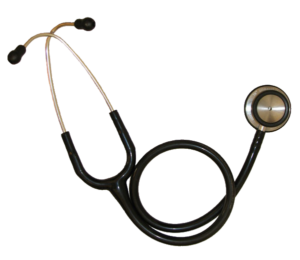 There have been growing concerns about the presence of harmful endocrine disrupting chemicals called phthalates in common products and foods. A recent study found phthalates in a large variety of fast foods purchased from fast food restaurants - from hamburgers and chicken nuggets, to chicken burritos. They found detectable levels of phthalates in all the foods sampled, with meat products having higher levels than non-meat foods, such as fries and pizza.
There have been growing concerns about the presence of harmful endocrine disrupting chemicals called phthalates in common products and foods. A recent study found phthalates in a large variety of fast foods purchased from fast food restaurants - from hamburgers and chicken nuggets, to chicken burritos. They found detectable levels of phthalates in all the foods sampled, with meat products having higher levels than non-meat foods, such as fries and pizza.
This could explain why an earlier study found that people eating fast food had higher levels of phthalates than those who didn't eat fast food (and ate homecooked meals instead).
Phthalates are a group of chemicals used to make plastics soft, but are also known to disrupt the endocrine system. The chemicals leach into the food from the stain and water resistant packaging used for fast foods, and even from the gloves the food handling workers wear. When the foods are eaten, the consumer also ingests these chemicals - and the higher the levels in the body, the greater the health effects.
Endocrine (hormone) disruptors, such as phthalates, are associated with all sorts of health problems, including cancers, reproductive harm (e.g. poorer semen quality), lowered sex and growth hormones in children, thyroid disease, immune effects, and liver and kidney damage. Unfortunately, they are already found in the bodies of almost all Americans, so we should try to reduce our exposure.
Bottom line: try to eat less fast food, and try to eat more home cooked meals. Remember, the more you eat fast foods, the higher the phthalate levels in your body (it's a dose-response effect).
From Science Daily: Potentially harmful industrial chemicals detected in US fast foods
Chicken nuggets, burritos and other popular items consumers buy from fast food outlets in the United States contain chemicals that are linked to a long list of serious health problems, according to a first-of-its-kind study published today. ...continue reading "Endocrine Disruptors Called Phthalates Found In Fast Food"

 Bottom line: try to increase your intake of real whole foods, and decrease your intake of ultra-processed foods. This
Bottom line: try to increase your intake of real whole foods, and decrease your intake of ultra-processed foods. This  While many doctors encourage routine medical check-ups for healthy adults each year, others have raised doubts whether this is really necessary. There is also the issue of overdiagnosis and overtreatment, which may actually cause harm.
While many doctors encourage routine medical check-ups for healthy adults each year, others have raised doubts whether this is really necessary. There is also the issue of overdiagnosis and overtreatment, which may actually cause harm.

 Something protective that we all can do! A large study of patients found that getting an annual flu shot appears to provide some protection from severe COVID-19 effects.
Something protective that we all can do! A large study of patients found that getting an annual flu shot appears to provide some protection from severe COVID-19 effects. It has been known for a while that eating fermented foods and high fiber foods is healthy for us. A recent
It has been known for a while that eating fermented foods and high fiber foods is healthy for us. A recent 
 There are different types of pesticides. Harmless sounding “weed-killers” are actually herbicides, and “bug-killers” and “bug sprays” are insecticides. The purpose of pesticides is to kill or repel whatever is viewed as a pest, whether insects or weeds. Lawn care pesticides are considered to be “cosmetic” or non-essential use pesticides – meaning they are only used for aesthetic purposes.
There are different types of pesticides. Harmless sounding “weed-killers” are actually herbicides, and “bug-killers” and “bug sprays” are insecticides. The purpose of pesticides is to kill or repel whatever is viewed as a pest, whether insects or weeds. Lawn care pesticides are considered to be “cosmetic” or non-essential use pesticides – meaning they are only used for aesthetic purposes. Our pets are at risk too. Dogs exposed to lawn pesticides develop the same cancers as humans. Researchers consider them early warning systems for human health because cancers take only a few years to show up in dogs, but many years in humans.
Our pets are at risk too. Dogs exposed to lawn pesticides develop the same cancers as humans. Researchers consider them early warning systems for human health because cancers take only a few years to show up in dogs, but many years in humans.  The findings of a recent
The findings of a recent